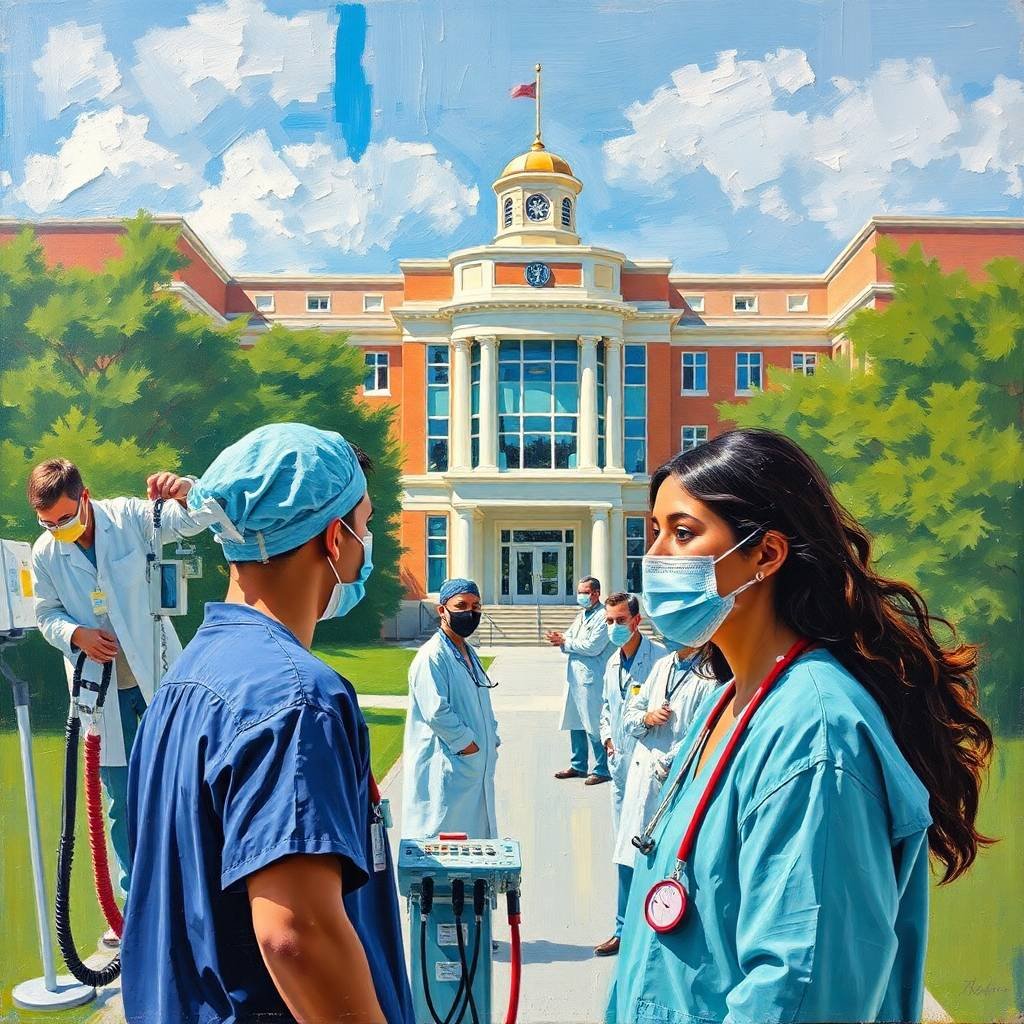
It’s a common misconception that foreign nationals are entirely barred from studying medicine and surgery (MBBS) programs in India. While the process has specific requirements and can be highly competitive, it is indeed possible for international students to pursue their medical education in India.
The confusion often arises from the stringent regulations and the primary focus of India’s medical education system on its own citizens. However, with the right qualifications, adherence to rules, and a good understanding of the admission process, foreign nationals, including Non-Resident Indians (NRIs) and Overseas Citizens of India (OCIs), can secure a seat in Indian medical colleges.
Here’s a breakdown of why this perception might exist and the actual scenario:

The Roots of the Misconception:
1. NEET Mandate: The National Eligibility cum Entrance Test (NEET) is the sole gateway for MBBS admissions in India. This highly competitive exam, primarily designed for Indian students, sets a high bar for entry. Many assume that foreign nationals cannot or do not need to take this exam, leading to the idea of exclusion.
2. Quota Systems: India has various reservation quotas for its citizens (SC, ST, OBC, EWS, etc.). While NRIs and OCIs have specific quotas (often under “NRI Quota” or “Management Quota” in private institutions), foreign nationals not falling into these categories might find the general admission path less clear.
3. Strict Equivalence Requirements: The National Medical Commission (NMC), formerly the Medical Council of India (MCI), has strict guidelines regarding the equivalence of foreign qualifications. This can make the application process seem daunting, implying difficulty for non-Indian students.
4. Limited Information for Foreigners: Compared to the abundance of information for Indian aspirants, details specifically tailored for foreign nationals can be less prominent, leading to the assumption of limited opportunities.
The Reality: How Foreign Nationals Can Study MBBS in India:

Foreign nationals, including NRIs and OCIs, can pursue MBBS in India, subject to meeting specific criteria and following the prescribed admission procedures. Here’s what’s typically required:
1. NEET Qualification (Mandatory): This is perhaps the most crucial point. All candidates, including foreign nationals, NRIs, and OCIs, aspiring to study MBBS in India must qualify for the NEET-UG exam. This ensures a baseline academic standard for all medical aspirants.
2. Academic Eligibility:
A. Completion of 10+2 (or equivalent) with Physics, Chemistry, and Biology/Biotechnology and English as core subjects.
B. Minimum aggregate marks in PCB as specified by the NMC (typically 50% for general category, with relaxations for reserved categories).
C. Their qualifications must be evaluated for equivalency by the Association of Indian Universities (AIU) in accordance with the regulations set by the NMC.
3. Age Limit: Candidates must have completed 17 years of age on or before December 31st of the admission year. There is generally no upper age limit for NEET for foreign nationals.
4. Admission Categories:
A. NRI Quota/Management Quota: Many private medical colleges and deemed universities offer seats under these quotas. NRIs and OCIs primarily fall under these categories.
B. Direct Admissions: In some cases, and often for foreign nationals from specific countries or under bilateral agreements, direct admissions might be possible, but this is less common and highly regulated.
5. Documentation: A valid passport, academic transcripts, equivalency certificates, and other documents proving nationality and eligibility are essential.
6. Visa Requirements: Foreign nationals will require a student visa endorsed for the specific institution.
7. Financial Capability: Medical education in India, especially under NRI/Management quotas, can be expensive. Students need to demonstrate financial capability to cover tuition fees and living expenses.
Challenges and Considerations for Foreign Nationals:

While possible, studying MBBS in India as a foreign national comes with its own set of challenges:
1. High Competition: Even with quotas, the number of seats is limited, and competition remains intense.
2. NEET Preparation: The NEET exam syllabus is based on the Indian CBSE curriculum, which might require additional preparation for students from different educational backgrounds.
3. Cultural and Linguistic Adjustment: While English is the medium of instruction in most medical colleges, adapting to a new cultural environment can be challenging.
4. Cost: Tuition fees for NRI/Management quota seats are significantly higher than those for general category seats.
5. Post-Graduation Pathways: Foreign graduates wishing to practice medicine in India after their MBBS will need to clear the Foreign Medical Graduate Examination (FMGE) or the upcoming National Exit Test (NExT), a mandatory licensure exam to obtain a medical license in India.
In conclusion, the idea that a foreign national “cannot” study medicine and surgery in India is not accurate. While the path is distinct from that of Indian citizens and involves fulfilling specific eligibility criteria, including the mandatory NEET qualification, India’s medical colleges do welcome international students, particularly under designated quotas. Aspiring foreign medical students need to be well-informed, prepared for the competitive nature of admissions, and ready to navigate the specific regulatory framework.
Hi, I’m Willie Popo from Papua New Guinea currently doing 2nd year of studying Nursing. It is my childhood dream to purse a Medical studies. I have completed grade 12 and other necessary documents to support me for taking medicine so please help me to purse my study in India.
Hope and faith to hear your response.
Thank you for reaching out to us. You can read our blog on medicine courses in India and get yourself updated. Moreover, you can apply at https://bestglobal.org